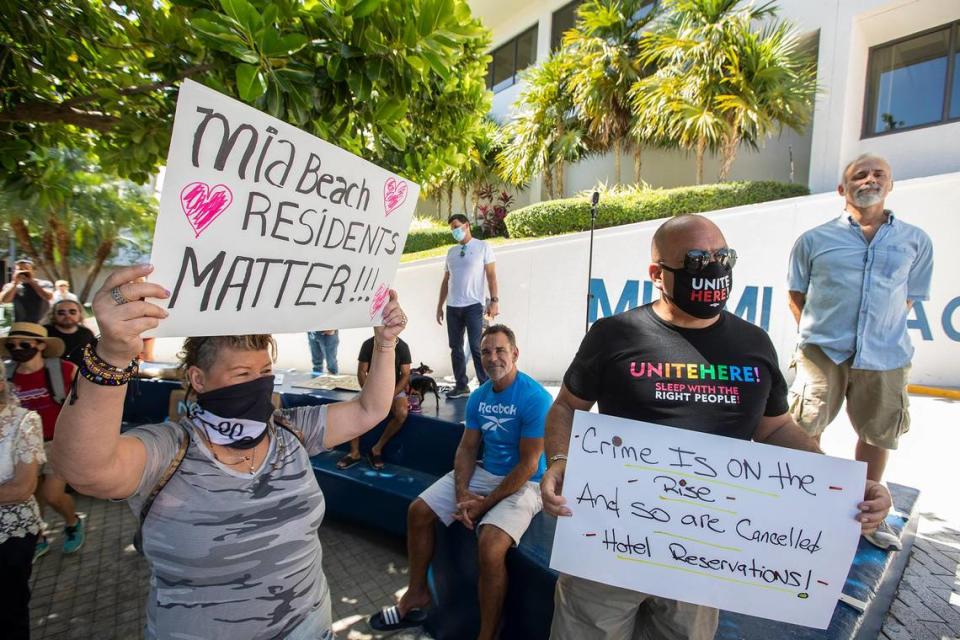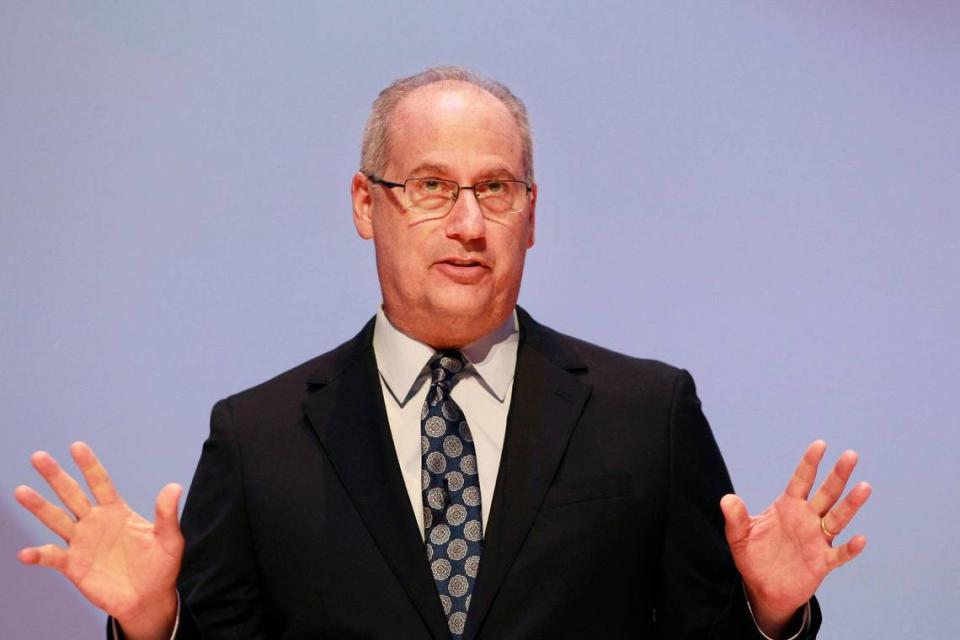Amid spring break uproar, Miami Beach mayor proposes 2 a.m. South Beach alcohol cutoff
- Oops!Something went wrong.Please try again later.
- Oops!Something went wrong.Please try again later.
Amid resident uproar about spring break and the South Beach party scene, Mayor Dan Gelber is once again calling for a rollback of alcohol sales in the entertainment district — this time to 2 a.m. And if the City Commission won’t approve it, he said residents should place it on the November ballot themselves.
Gelber, who proposed a midnight cutoff for alcohol sales in July, renewed his appeal to commissioners on Tuesday hours after Miami Beach residents appeared before a county board to vent frustrations with the city’s nightlife industry.
“While there are some who clearly will fight some of these ideas tooth and nail, there are others who I think would like to see them implemented,” Gelber told the Miami Herald.
The memo he released Tuesday outlines a dozen policy changes he is proposing for the South Beach party district.
The memo includes proposals to ban “oversized drinks and Hookah pipes” at sidewalk cafes in the district, remove noise exemptions for Ocean Drive bars and restrict the renting of motorized vehicles like three-wheel “slingshots” that are popular among tourists. Also included is a request for increased police staffing, zoning changes to incentivize office and residential uses, and increasing the city’s cultural events budget.
Under the alcohol crackdown, businesses could apply for a “late-night club license” if they have adequate security and a record of complying with city laws, the memo says. Currently, alcohol can be served until 5 a.m. citywide.
Although more specific details of the proposals were not made available Tuesday, South Beach’s three main strips — Ocean Drive, Collins Avenue and Washington Avenue from Fifth to 16th streets — will be impacted by some or all of Gelber’s plan, he told the Miami Herald.
Gelber asked the city administration to “prepare legislation” to present to the commission. But Gelber said if the proposals are rejected, residents should push it through as a voter referendum.
“The current business model has been decades in the making; we cannot take decades to reverse it,” he said in a video message released with the memo. “The time for patience is over. The time for change is now.”
The crush of spring break crowds in South Beach has thrust the city into national news and led to an emergency curfew in the entertainment district and restrictions for entry into the city.
Last Saturday, dozens of residents rallied outside City Hall to complain about the hard-party profile in South Beach and the city’s handling of the crowds. On Tuesday, a group of about 20 residents addressed the Miami-Dade County Community Relations Board during a meeting on Ocean Drive to discuss tensions surrounding spring break.
Scott Schrey, 52, told the board the rowdy party scene has been a constant problem in South Beach for years — but spring break has amplified it.
“It’s not stopping, and it’s every weekend,” he said. “It was just doubled up because of the spring break, which is actually a good thing because here we are. Now what do we do? Something’s got to change.”

In a city that is known for its nightlife, proposed restrictions on alcohol sales have long been a touchy subject.
In July, Gelber proposed a similar list of policy proposals to “reimagine” South Beach as an arts and culture district. He called on the commission to move up the “last call” for alcohol to midnight and set up an alcohol-control board to authorize conditional exemptions for well-functioning businesses. The rollback was rejected by the city commission.
Critics of his proposal pointed to the fact that violent crime and rowdy partying haven’t died down in South Beach despite the midnight curfew or noise restrictions currently in effect due to COVID-19.
Listen to today's top stories from the Miami Herald:
Subscribe: Apple Podcasts | Spotify | Amazon Alexa | Google Assistant | More options
In 2017, then-Mayor Philip Levine unsuccessfully tried to move up the “last call” for alcohol to 2 a.m. The rollback went to a referendum, and about 65% of voters rejected it. Two of Ocean Drive’s most popular businesses, Mango’s Tropical Cafe and the Clevelander South Beach, lobbied hard against the referendum and won.
But both Gelber and Levine, who have discussed the proposals, said they believe that residents will back the alcohol-sales rollback on the heels of a spring break period that has at times been chaotic and violent.

“I know there’s an appetite for a plan right now and I figured by distilling it into an actual series of proposals, people would be able to get behind it accordingly,” Gelber said.
Levine, who noted a “sense of urgency” among residents, said he has heard from some residents that they would support launching a referendum campaign to curb the hard-party scene in South Beach.
“The mayor is one vote of seven. If you don’t have a commission that’s listening to the will of the people, then eventually they get either voted out of office or recalled,” he said. “I think it’s very unfortunate that a referendum may be needed to go around the Commission, direct to the residents of Miami Beach to help Mayor Gelber move his agenda forward.”

